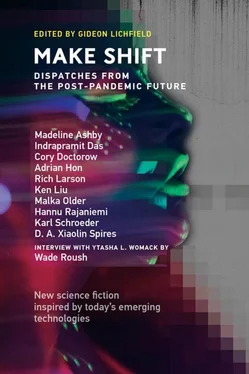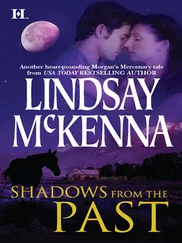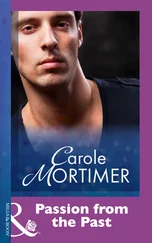“He probably thinks the third time’s a charm,” Erin said.
“Is it?” Dionisia asked.
Erin twisted the linen tea towel in her hands into a rope and playfully snapped Dionisia with it. “Fuck off. Of course not. I don’t even know why he keeps showing up.”
Dionisia arched her pierced eyebrow. “Oh, you don’t, eh? Well, I do.”
Erin rolled her eyes. “You say that about everyone.”
“You’re the last single woman under forty in Dowling who doesn’t already have children of her own.”
“So I’m a withered old crone, is what you’re saying.”
“I’m saying you live in a house with seven bedrooms and you could be filling them up.”
“But then where would you and Ruthie live?”
Erin always asked this question whenever this conversation came up. But this time, Dionisia had an answer: “We’d take the place over the garage! There’s a whole finished apartment up there that you could be renting!”
Erin held up a finger. “This is because I’ve made molletes too often this week, isn’t it?”
“Yes. You’re going to get scurvy.”
“Beans and cheese on toast is a perfectly reasonable—”
The doorbell rang. Erin sighed deeply. She rolled her head back and closed her eyes. Her neck crunched audibly. She wasn’t sure if the tension in her tendons was due to the man outside, or the offer he kept making, or how much harder it became to refuse each time. Whatever it was, it was playing hell with her jaw. “If we ignore him, do you think he’ll go away?”
“Did he go away the other two times?”
The doorbell rang again. Erin growled in the back of her throat, and made for the door. Callum Carruthers—he sounded like a bad guy on an old Hollywood Sunday night prestige series, like Don Draper or Walter White—stood on the screen porch with his finger hovering over the button.
“Hi, Miss Landry, I’m here to—”
“Yeah, yeah, I know,” Erin muttered. She pushed out the front door and onto the screen porch. There were still a couple of pumpkins out there in need of carving, and she took one of the Muskoka chairs and hauled a pumpkin into her lap. She picked up the Sharpie marker she’d left on the pulp-strewn towels, and started absently drumming with it on what would eventually become the jack o’lantern’s face. As she did, a white pickup truck drove past the farm, blaring music. She had to pause and let its noise doppler away before speaking.
“Okay, let’s get this over with,” she said.
Carruthers took the Muskoka chair opposite hers. He was too big for it, just like he was too big for everything in the house: his knees seemed almost level with his chest even sitting down. The first time he’d come inside he kept shifting uncomfortably on the antique chairs around the dining table, as though he were terrified of breaking them. It made the whole process torturously slow, and the second time he came around, Erin moved him to the living room, and that was somehow worse, because he kept staring at all of Ruthie’s paintings and Erin had the weird feeling he wanted to make some absurd grand gesture of buying them all, just to prove he wasn’t a total monster or something.
Now they looked out from the screen porch and onto the winding gravel drive and the scarecrows guarding the raised vegetable beds in the front garden. The first hard frost was still a few weeks away; after that, she could take in the Brussels sprouts and other brassicas.
“It’ll look nice when they’re all lit up like that,” he said. “The pumpkins. There are more, now.”
“They’re supposed to keep away evil spirits, you know.”
“And yet, I still keep showing up. Is that what you’re getting at?”
Erin shrugged. “It’s a free country. So if you really like Dowling all that much, I can’t stop you from hanging around.”
“It is actually growing on me. I have a thing for the croque madame at Tweed’s.”
The white pickup truck with the music passed by again. She frowned. To make that turn, they must have either sped way up to hit the nearest intersection, or pulled a U-turn in the middle of the road. Not that there was a lot of traffic, but the OPP drones were getting better at identifying offenders all the time.
“It’s better with mustard than jam,” she heard herself say.
“I know. I asked them to skip the jam after the first time.”
Erin eyed him. “I’m not going to sell you the land just because we have the same taste in breakfast sandwiches, you know.”
“I could tell you my latté order,” he said, without missing a beat. “Would that help?”
“I’m a tea person.”
He rolled his eyes. “Of course you are.”
“So, show me the goods.”
He blinked. “Excuse me?”
“Your tablet. Your pitch. All your fancy concept art and mockups and storyboards and whatnot. I want to see the drone footage of my farm that I never authorized anyone to shoot.”
He snorted. “I left the tablet in the truck. There’s no point.”
“Finally, we agree.” She scowled. “If you know I’m going to decline the offer a third time, what are you doing here?”
With difficulty, Carruthers twisted a little in his Muskoka chair to face her more directly. “I want to hear, in detail, why you’re refusing me.”
“ Refusing you? This isn’t an Austen novel, Mr. Carruthers—”
“It’s Callum. And that’s good, because Georgette Heyer is better.” Before she could tell him she had no room for blasphemers in her home, he added: “I want to hear why you’re saying no, so I can tell the people I’m representing. I want them to know exactly why they won’t be bonusing me this year.”
Erin rubbed the thumb and index finger of her left hand together. “Hold on, let me string up the tiniest violin in the world for this song.”
“I’m serious! I want to know.” He held up his open hands. “Think of it this way. You’re providing me with on-the-job training. If you explain your…” She watched him struggle for the right word. By now she knew his little tics and tells. He wasn’t as good at this whole real estate development thing as he thought he was. For a moment he’d gotten perilously close to the word feelings , but that would make her sound like an over-emotional feminine stereotype. And line of reasoning would have made her sound like her intellect was somehow compromised. He’d boxed himself in. “Your perspective,” he said, finally. “If you share your perspective with me, one more time, I’ll be able to consider other situations like this one from that perspective. I can learn how other prospective clients might be approaching a sale like this one. So I can be, you know, more sensitive. To their needs.”
Erin cleared her throat. She sat up a little taller in her Muskoska chair. “I don’t know why a simple no shouldn’t suffice. It sounds to me like your firm has issues around consent.”
“That’s probably true.” When she looked at him in surprise, he shrugged. “What? I’m not trying to snow you, here. You know bullshit when you smell it. I respect that. But my wanting to know more about why you’re declining our offer isn’t bullshit. I think our offer could fundamentally transform—”
“Here it comes—”
“ Fundamentally transform not just your life, but the lives of countless children and young adults. Building a fully air-gapped, quarantine-safe boarding school on 190 acres, with room for an agricultural and veterinary program, and trails for horse therapy, could enrich the lives of children whose parents can’t afford tutors and nannies, whose parents have made the heartbreaking decision to send them away for their own safety—”
Erin uncapped her Sharpie as though unsheathing a sword, and made a show of very deliberately ignoring him. She focused narrowly on drawing a face across the warty, dimpled flesh of the pumpkin. She considered how complicated it might be just to draw a big dollar sign, and whether it would get her point across.
Читать дальше












